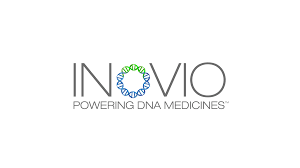Author Interviews, Brain Cancer - Brain Tumors, Cancer Research, Immunotherapy, Pharmaceutical Companies / 22.02.2021
Glioblastoma: Inovio’s Novel Combination of DNA Medication Plus Immunotherapy Boosts Survival
MedicalResearch.com Interview with:
 Jeffrey Skolnik, MD
Senior Vice President, Clinical Development
INOVIO
MedicalResearch.com: What is the background for this technology? Would you tell us a little about the brain tumor, Glioblastoma Multiforme? How common is it, whom does it primarily affect?
Response: Glioblastoma (GBM) is the most common malignant brain tumor, affecting more than 10 thousand people each year in the United States. Most people diagnosed with GBM are above the age of 60 years, although GBM can be diagnosed at any age, including in children and young adults. Despite decades of research, GBM remains almost universally fatal. GBM is a tumor of the glial cells of the brain, and current therapies are directed at removing tumor with surgery and killing residual tumor cells with radiation and chemotherapy.
More recently, with the introduction of immunotherapies such as immune checkpoint inhibitors (ICI) for the treatment of cancer, clinical studies have tried to add this promising technology to the treatment of GBM. Unfortunately, despite success in other types of cancer, ICIs have not demonstrated any clinical benefit in treating GBM. Newer clinical studies aim at introducing a combination of newer therapies together to try to tackle this terrible disease, and INOVIO’s GBM-001 study is one such example of an innovative approach to treating GBM. (more…)
Jeffrey Skolnik, MD
Senior Vice President, Clinical Development
INOVIO
MedicalResearch.com: What is the background for this technology? Would you tell us a little about the brain tumor, Glioblastoma Multiforme? How common is it, whom does it primarily affect?
Response: Glioblastoma (GBM) is the most common malignant brain tumor, affecting more than 10 thousand people each year in the United States. Most people diagnosed with GBM are above the age of 60 years, although GBM can be diagnosed at any age, including in children and young adults. Despite decades of research, GBM remains almost universally fatal. GBM is a tumor of the glial cells of the brain, and current therapies are directed at removing tumor with surgery and killing residual tumor cells with radiation and chemotherapy.
More recently, with the introduction of immunotherapies such as immune checkpoint inhibitors (ICI) for the treatment of cancer, clinical studies have tried to add this promising technology to the treatment of GBM. Unfortunately, despite success in other types of cancer, ICIs have not demonstrated any clinical benefit in treating GBM. Newer clinical studies aim at introducing a combination of newer therapies together to try to tackle this terrible disease, and INOVIO’s GBM-001 study is one such example of an innovative approach to treating GBM. (more…)
 Jeffrey Skolnik, MD
Senior Vice President, Clinical Development
INOVIO
MedicalResearch.com: What is the background for this technology? Would you tell us a little about the brain tumor, Glioblastoma Multiforme? How common is it, whom does it primarily affect?
Response: Glioblastoma (GBM) is the most common malignant brain tumor, affecting more than 10 thousand people each year in the United States. Most people diagnosed with GBM are above the age of 60 years, although GBM can be diagnosed at any age, including in children and young adults. Despite decades of research, GBM remains almost universally fatal. GBM is a tumor of the glial cells of the brain, and current therapies are directed at removing tumor with surgery and killing residual tumor cells with radiation and chemotherapy.
More recently, with the introduction of immunotherapies such as immune checkpoint inhibitors (ICI) for the treatment of cancer, clinical studies have tried to add this promising technology to the treatment of GBM. Unfortunately, despite success in other types of cancer, ICIs have not demonstrated any clinical benefit in treating GBM. Newer clinical studies aim at introducing a combination of newer therapies together to try to tackle this terrible disease, and INOVIO’s GBM-001 study is one such example of an innovative approach to treating GBM. (more…)
Jeffrey Skolnik, MD
Senior Vice President, Clinical Development
INOVIO
MedicalResearch.com: What is the background for this technology? Would you tell us a little about the brain tumor, Glioblastoma Multiforme? How common is it, whom does it primarily affect?
Response: Glioblastoma (GBM) is the most common malignant brain tumor, affecting more than 10 thousand people each year in the United States. Most people diagnosed with GBM are above the age of 60 years, although GBM can be diagnosed at any age, including in children and young adults. Despite decades of research, GBM remains almost universally fatal. GBM is a tumor of the glial cells of the brain, and current therapies are directed at removing tumor with surgery and killing residual tumor cells with radiation and chemotherapy.
More recently, with the introduction of immunotherapies such as immune checkpoint inhibitors (ICI) for the treatment of cancer, clinical studies have tried to add this promising technology to the treatment of GBM. Unfortunately, despite success in other types of cancer, ICIs have not demonstrated any clinical benefit in treating GBM. Newer clinical studies aim at introducing a combination of newer therapies together to try to tackle this terrible disease, and INOVIO’s GBM-001 study is one such example of an innovative approach to treating GBM. (more…)
